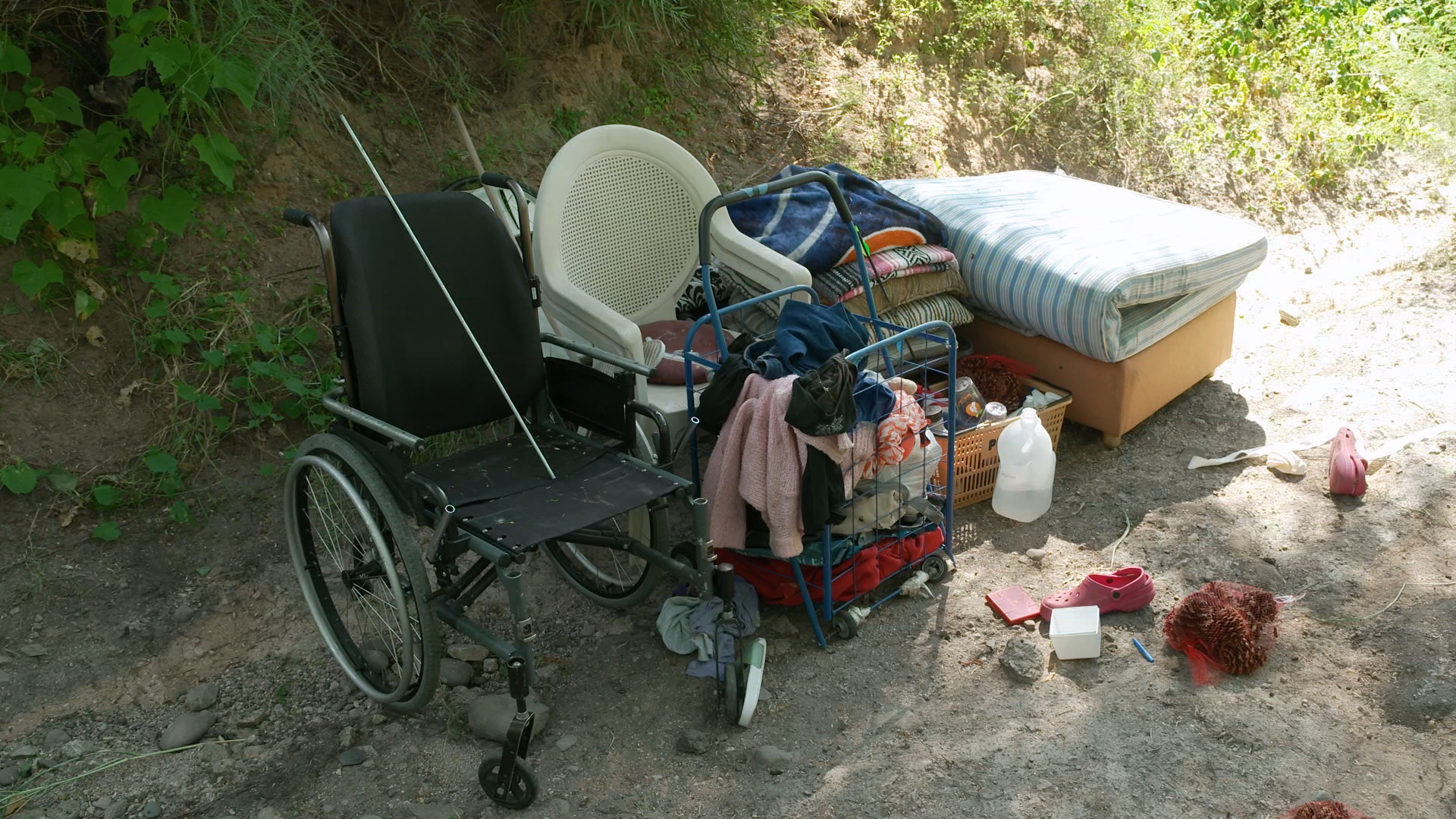
Tucson’s homeless aid organizations are expressing concerns over Friday’s Supreme Court ruling that upheld an Oregon city’s anti-camping law.
The 6-3 decision ruled that cities with anti-camping bans are not in violation of the Eighth Amendment’s prohibition on cruel and unusual punishment.
The Grants Pass case raised significant conversation at a Tucson City Council meeting in February. Although council members raised concerns that the city should pay close attention to the coming precedent, the council voted unanimously to draft an ordinance that would ban encampments in washes because of safety and environmental concerns. So far, there hasn’t been any further action.
Xavi Martinez does homeless outreach with Tucson’s Community on Wheels, and he says aid groups are preparing for the Grants Pass vs Johnson ruling to change things.
“Now we're really concerned about how they're going to design this ordinance…this state cannot handle dealing with prohibiting any kind of encampments. Because, there just isn't enough housing, there isn't enough services,” he said.
Councilmember Paul Cunningham was hesitant when the ordinance was being discussed at the Feb. 22 meeting.
“Before we take a big leap of faith that we really, really need this, I think we want the city attorney to at least take a look at this Supreme Court case,” he said.
City Attorney Mike Rankin said in a statement Friday that he did not expect the decision would have a significant impact on the city’s response to encampments on public property.
“Like the city of Grants Pass, Oregon, Tucson has established a multifaceted approach to address unsheltered homelessness that respects the dignity and personal property of homeless individuals, while prohibiting unlawful occupancy of public property,” he wrote.
He also said the ruling reaffirms Tucson’s current responses.
“Today’s Supreme Court decision reinforces the validity of the Tucson’s Homeless Encampment Protocol, under which the City’s enforcement efforts and deployment of resources to eliminate unlawful encampments are prioritized based upon the encampment’s impact on public health and safety. I expect that this approach will continue now that the Supreme Court has confirmed our authority to enforce our local ordinances,” he wrote.
Meanwhile, the Pima County Attorney’s Office criticized the ruling, but said they did not expect further criminalization of homelessness in the county.
“Let me be clear, when criminal behavior is afoot, we have and will continue to hold people accountable. But arresting people for sleeping is not the way. Fortunately, I don’t foresee our local authorities using precious resources in an attempt to arrest our way out of chronic illness. While the Supreme Court might tolerate cruelty, our community does not,” the office wrote in a statement.
The Tucson Pima Collaboration to End Homelessness released a critical stance on the Supreme Court’s ruling Friday, saying their Board “disagrees wholeheartedly.”
“Our unhoused neighbors will be disproportionately affected by laws that could inflict similar punishments,...” they wrote in a statement. “The ideology behind these laws is to exclude people from our community based on their unhoused status. Barriers created by fines and potential warrants will make it extremely harder to become housed.”
Martinez said this ruling, and mixed reactions from local leaders, solidifies the need for community outreach.
"I think all of us are pretty much ready to take whatever kind of actions we need to speak with the council, or to even speak with the county, or take things up to even the state level," he said. "We'll do our best to keep addressing the severe need for proper community-based solutions."

By submitting your comments, you hereby give AZPM the right to post your comments and potentially use them in any other form of media operated by this institution.